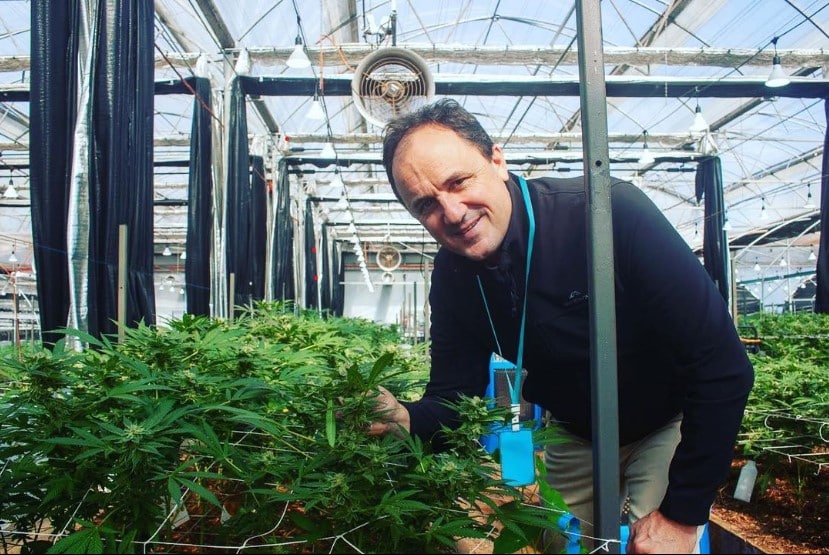After 11,000 people signed a recent petition demanding reform to the state’s drug-driving laws, Legalise Cannabis NSW MP Jeremy Buckingham says the Government can’t ignore the clamour for change forever.
Picture this: you’re a single mother with two young children who attend the local primary school. Three years ago, you were diagnosed with multiple sclerosis.
You have good days, you have bad days. On the bad days, you can barely move from the pain and sleep is a nightmare of pain and bad dreams.

Your doctor tells you that opiates could ease the pain, but you’ve seen the videos of zombie addicts in the US, and this scares you.
Then a friend suggests two types of medicinal cannabis – CBD oil for the aches and anxiety and THC before bedtime for a good night’s rest.
The treatment works for you. For many people, this is a wonder drug. It’s non addictive, side-effect free and best of all, it’s highly effective.
There’s only one catch – you live in a regional area where your children’s school and shops are a 15-minute drive. Without a car, you’re trapped.
The current law tests for presence of THC rather than impairment, which means you can be driving illegally days or even weeks after taking your treatment.
So, you find yourself in a situation where you have an impossible choice – performing your role as caregiver or accessing the treatment that makes your life bearable.
This is the situation faced by many thousands of people with medicinal cannabis prescriptions thanks to our outdated, insane and unjust roadside drug-testing laws.
So how did we get here?
When Labor MP Matt Brown introduced the relevant legislation into NSW parliament in 2006, he singled out speed, ecstasy and THC as the three drugs to be targets, in part because they were all illegal.
Since the introduction of medicinal cannabis treatments in 2016, that is no longer the case.
Indeed, he was refreshingly honest in his intention for the law: “There will be no need for police to prove that a person’s driving was impaired; it need only be proved that the drug was present in the person’s sample,” he said.
“This sends a clear message to motorists that driving with any amount of these illegal drugs in the body is not tolerated in New South Wales.”
So it was never about impairment, and it was all about illegality.
“This is the equivalent of punishing someone for having three schooners of beer on a Saturday night and then telling them that they can’t drive on the following Tuesday morning.”
It’s also worth noting what the Road Transport Legislation Amendment (Drug Testing) Bill does not contain. No mention of legal prescription drugs that can create impairment such as benzodiazepines or opiates, presumably because the legislation was never intended to target patients following their doctor’s instructions for a legitimate cannabis treatment.
All we are asking for is that this anomaly – where one prescription drug is treated differently from every other one – is corrected.
Of course, no-one is arguing for impaired drivers to get behind the wheel. We have no shortage of laws where drivers can be charged with impaired or dangerous driving, that is not the issue.
Impairment tests work well enough in Canada and the 24 US states where adult use of cannabis is legal. They can work here too.
The saliva test administered by police is notoriously unreliable – one study has suggested up to 20 per cent are false negatives – and the testing for presence means that patients can never be sure when it’s safe to drive.
We are unaware of any home-testing kits on the market, so patients are left to guess whether they are breaking the law or not. They already know that their driving is unaffected.
This is the equivalent of punishing someone for having three schooners of beer on a Saturday night and then telling them that they can’t drive on the following Tuesday morning.
So, what are the chances of fixing this inequity?
There are promising signs. I’ve met with NSW Premier Chris Minns and Health Minister Ryan Park, and both indicated an intention to fix this anomaly.
In addition, the Legalise Cannabis Party vote is important for the Government in the Upper House, so our voice is heard.
Medicinal cannabis patients will need to be patient, but we’re not going to be patient forever. The Government knows it has to move on this.
In the first week of parliament, I tabled a petition signed by more than 11,000 people demanding a change to the law.
Given that data strongly suggests that these people live in marginal electorates, they are a voice that Government MPs will ignore at their peril.
